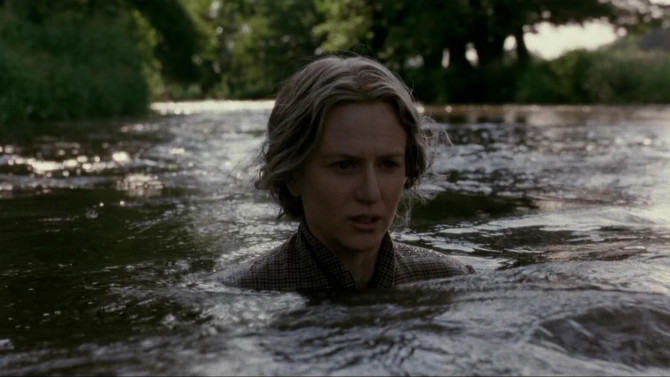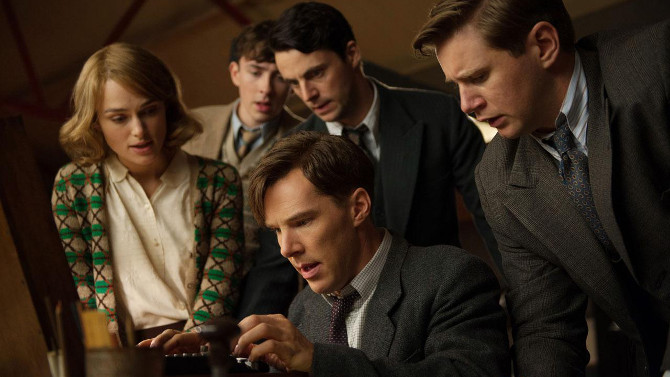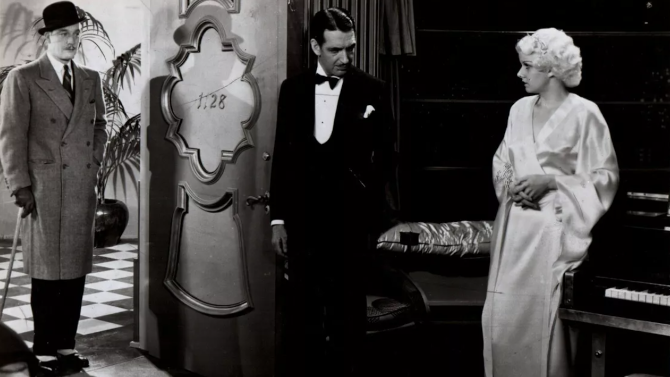
Wise Gals
It’s funny how things have changed so much over the years, but at the same time, human beings seem to have changed so little. Single men complain about women, while single women complain about men just as much... something discussed quite frequently in the romantic dramedy Three Wise Girls (1932), directed by William Beaudine and based upon Wilson Collison’s novel “Blonde Baby”. Cassie Barnes (Jean Harlow) is a small town soda jerk... and with her shapely body and platinum blonde locks, she attracts all the wrong kinds of men. Having had enough of the lecherous men back home, she makes the move to New York City, quickly finding work (and a whole new crop of creeps) while working the ice cream and soft drink game.
-
Star Pick with Jenny Lampa
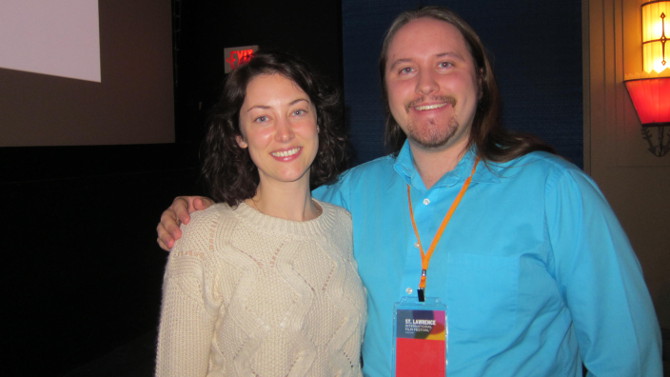 How Hours Mark the TimeThe HoursApril 26, 2016
How Hours Mark the TimeThe HoursApril 26, 2016Interweaving multiple stories can be a complicated thing to do. For every film that succeeds at structuring several tales into one powerful story, there are twice as many that fall flat. One movie that takes on this challenging task, tackling three separate narratives that take place in very different eras, is the 2002 dramatic motion picture The Hours. The film features several powerhouse performances from three superb actresses (Nicole Kidman, Meryl Streep and Julianne Moore), so it is perhaps not surprising that actress Jenny Lampa, who has earned rave reviews and has received a number of acting nominations for her performance in the Swedish thriller The Break-In, selected this as one of her favourite movies.
-
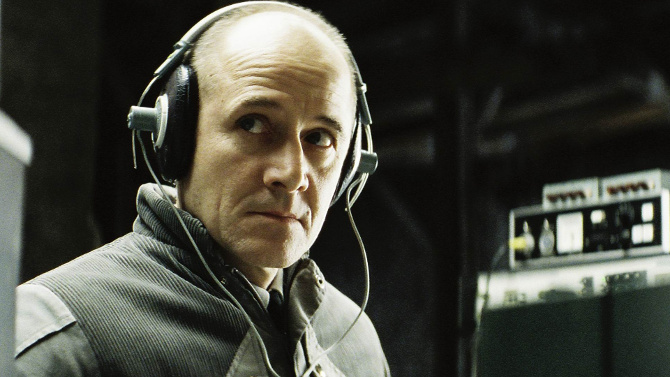
Are You Listening?
The Lives of OthersApril 17, 2016As viewers, we act as voyeurs, observing the intricacies of the character’s lives – their actions, interactions, relationships, affairs and countless other physical or mental manoeuvres. Films can act as therapy and relief, or can cause self-reflection, disgust or numerous other emotions depending on how we react to what we are scrutinizing on the screen. It may resemble something we have done in our own lives or could illustrate a seedy side of life that we have never even contemplated. A number of directors have cleverly infused their stories around the concept of voyeurism, adding a deeper level to our viewership, to great effect. The first filmmaker to come to mind is Alfred Hitchcock, who masterfully concocted Rear Window and Psycho around these themes, though there are countless other examples: Michael Powell’s Peeping Tom, Peter Weir’s The Truman Show and Stanley Kubrick’s Eyes Wide Shut are merely three more that fall within this category. A European motion picture that once again delves into this intriguing topic is Florian Henckel von Donnersmarck’s 2006 movie The Lives of Others.
-
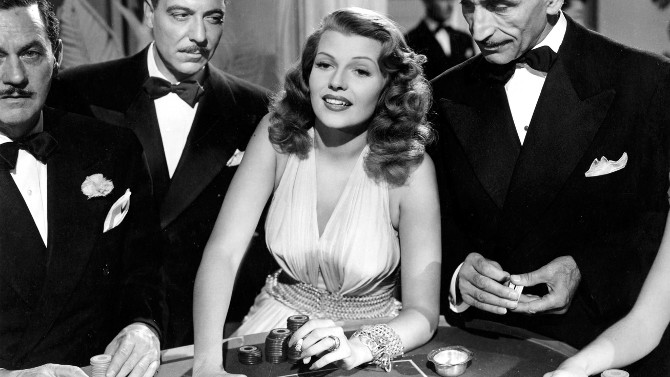
Luck be a Lady Tonight
GildaApril 10, 2016There is nothing like a memorable entrance/introduction to an onscreen character. The film that I am reviewing today has three. As the camera pans up at the very beginning of the movie, we are nearly hit by voice over narrator Johnny Farrell’s (Glenn Ford) trick dice. As he leaves the sketchy gambling room (after easily winning some cash with his fake cubes), he is held at gunpoint by a robber. In comes his saviour and soon to be boss, Ballin Mundson (George Macready), who uses his ‘best friend’, a walking stick that hides a dangerously long and sharp bayonet to save the nervous man. But it is the third and final entrance that blows the other two away. After Farrell begins to work for Mundson for some time, he learns, upon his bosses return from a trip, that he has gotten married. As the two enter the dame’s bedroom, her husband asks, "Gilda, are you decent?". Rita Hayworth’s title character, after a slight pause, pops up on the screen, and with a sensual flip of her perfect locks, flirtatiously responds "Me?". Dare I say, drama ensues.
-
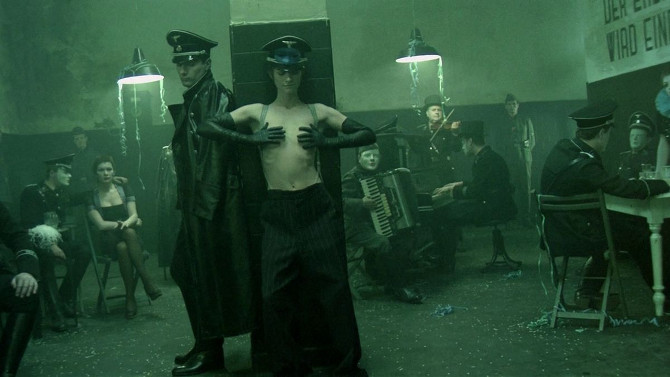
A Fateful Reunion
The Night PorterApril 5, 2016Controversial, edgy, tasteless and taboo are just a few words that have been used to describe the movie that I will be reviewing today. If there was ever a love it or loathe it film – this may be it. It has been chosen by the acclaimed company Criterion as being one of their ‘important classic and contemporary films’ and many film afficionados have lauded it, yet others have absolutely trashed it – with legend Roger Ebert proclaiming that it is "as nasty as it is lubricious, a despicable attempt to titillate us by exploiting memories of persecution and suffering". I will leave it to you to decide.
-
Star Pick with Stephen Harper
 The Enigma that is Man and MachineThe Imitation GameMarch 15, 2016
The Enigma that is Man and MachineThe Imitation GameMarch 15, 2016One of the more critically acclaimed films to come out of 2014 was the World War 2 drama The Imitation Game, which follows Alan Turing, a mathematical prodigy who builds a machine that can break the Enigma – a German device that decodes their secret military messages. Someone who wholeheartedly agreed with the praise this movie received is former Canadian Prime Minister Stephen Harper – who proclaimed that it was easily his favourite film of 2014.
-

A Gringo Walks Into a Cantina…
Ride the Pink HorseMarch 11, 2016His name, Lucky Gagin . . . or Robert Montgomery for those of you who are looking for the actor portraying this anti-hero. Montgomery, the iconic star, also tried his hand at directing (for the second time), with this rather unorthodox film-noir, Ride the Pink Horse. Our lead walks off a bus and into the city of San Pablo, a Mexican border town that is getting ready to host an annual fiesta.

